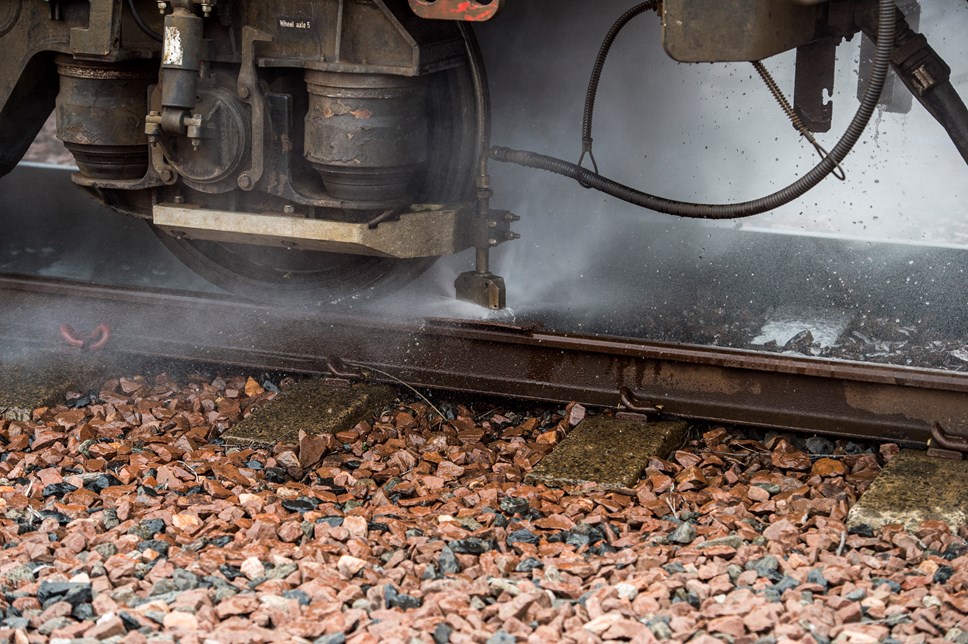
Rail network prepares for autumn conditions
It’s that time of the year again – the nights are drawing in, the temperature's dropping and the rail network is preparing for autumn conditions.
The end of October and start of November is, traditionally, the period which sees the most difficult conditions as the trees shed most of their leaves - which can cause damage to train wheels, in turn causing delays for passengers.
So far, fewer leaves have fallen compared with this time last year and track conditions have been relatively benign, but Northern is warning customers that autumn conditions and leaves on the line remain a problem.
Rob Cummings, Northern’s Seasonal Performance Improvement Manager, said: “We have experienced some issues relating to autumn conditions, but the majority of leaves are still on the trees and so more difficult conditions are likely as we move towards November.
“The debris from falling leaves can cause significant disruption to the network. Leaves stick to damp rails and passing trains compress them into a smooth, slippery layer, reducing trains’ grip.
“Leaves can also cause damage to train wheels (wheel flats) which mean the carriage has to be taken out of service and the wheel repaired before the problem becomes more serious.”
However, thanks to careful planning, Northern are ready for the autumn conditions and are working hard to minimise the impact on customers.
Rob added: “To keep disruption to a minimum we're working hard to keep the tracks in the best possible condition. Our trains are fitted with sand blasters which treat the tracks as they move, and Network Rail has leaf busting maintenance trains which blast water and sand onto the tracks to remove leaves and provide more grip for passenger and freight trains.”
“We have also introduced special timetables on problematic routes and our drivers also have advanced training to help develop techniques which further reduce the impact of slippery rails.”
In addition, a new state-of-the-art wheel lathe has been installed at Northern’s Neville Hill depot in Leeds in time for autumn.
The lathe repairs wheels by shaving away metal where the wheel has been worn down, which can happen more during tricky seasonal conditions.
Rob said: “We’re very excited to have this new technology which has been installed ahead of autumn. One of the biggest risks to our performance during October and November is leaves on the line, but by getting more trains ups and running faster we aim to deliver the very best service for our passengers.”
Northern also works in partnership with Network Rail to keep customer’s moving. This year, 179 track gel applicators have been positioned across the region's rail network. They spray a special sand-like gel onto the rails to help provide extra grip for train wheels.
Specialist teams will be positioned across the North West to check that the autumn treatment programme is working effectively and provide additional support where necessary.
Phil James, Network Rail’s North West route director, said: “Leaves on the line are a big problem for the railway. It disrupts services and inconveniences passengers and every year, Network Rail and train operators work together to battle against the elements to get passengers and freight to their destinations.
“Even more work has gone into getting prepared for autumn this year because of the challenges posed by the coronavirus pandemic, including how we operate the trains themselves. We are ready to keep people and goods moving across the North West by running a safe and reliable service for our customers.”
Contact Information
Notes to editors
To learn more about how Northern and Network Rail prepare for autumn, listen to our latest podcast Proud to be Northern here
